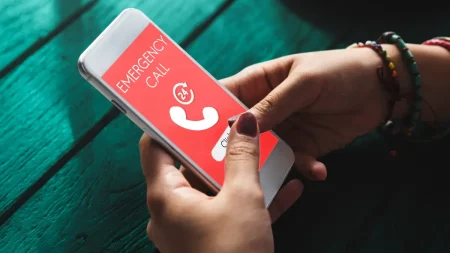With more South Africans turning to Facebook Marketplace for buying and selling goods, the platform has become a hub for convenient shopping. However, the growth of online shopping has also attracted scammers looking to take advantage of unsuspecting users. It’s important for everyone to be vigilant and stay aware of the common scams happening on Facebook Marketplace in 2024.
In this article, we will look at some of the top scams you should watch out for as a South African shopper. By understanding these scams, you can protect yourself and avoid falling victim to fraud.
1. Fake Item Listings
One of the most common scams on Facebook Marketplace is fake listings. Scammers often post items at very low prices to lure buyers. These can include high-demand items like smartphones, electronics, or even luxury goods like designer bags and watches.
How It Works:
The scammer posts a product with images and details that look legitimate. Once the buyer shows interest and makes payment, the scammer disappears, and the buyer never receives the item. In some cases, scammers may send fake tracking information to make the buyer think the item is on the way.
How to Avoid It:
- Be cautious of deals that seem too good to be true. If the price is much lower than the market value, it’s likely a scam.
- Check the seller’s profile. Be wary of new accounts or accounts with very few friends, as these may be fake.
- Try to arrange a face-to-face meeting to inspect the item before making any payments.
2. Payment Scams
In 2024, payment scams have become more sophisticated. Scammers often request buyers to pay through methods that are difficult to trace, such as cryptocurrency, PayPal, or wire transfers. They may also send fake proof of payment, making the seller believe they have been paid when no money has actually been sent.
How It Works:
A scammer pretending to be a buyer will agree to purchase an item and offer to pay via an unconventional payment method. They may also say they overpaid and ask you to send back the difference, but the initial payment never goes through. In the case of sellers, they might send fake notifications from their bank or payment platforms, tricking sellers into shipping items without having received actual payment.
How to Avoid It:
- Only accept cash or payments through secure methods like EFT (Electronic Funds Transfer) with proper confirmation from your bank.
- Avoid shipping items before the payment has cleared into your account.
- Be suspicious if a buyer asks to overpay for an item.
3. Counterfeit Goods
Another growing scam on Facebook Marketplace involves counterfeit goods. Scammers sell fake versions of branded products, such as clothing, shoes, electronics, or cosmetics, passing them off as authentic. South African buyers are often attracted by low prices, only to discover they’ve received poor-quality knock-offs.
How It Works:
The scammer lists a product, often using official images of a branded item. Once the buyer makes a purchase, they either receive a counterfeit product or, in some cases, nothing at all. This scam is particularly common with high-end brands like Nike, Adidas, Apple, and Samsung.
How to Avoid It:
- Research the seller and ask for more pictures or details about the product.
- Be cautious of branded items sold at significantly discounted prices.
- Check the seller’s ratings and reviews on Facebook Marketplace.
4. Non-Delivery Scams
Non-delivery scams involve a seller taking payment for an item but never delivering the product. This scam is particularly common with larger or more expensive items like furniture, appliances, or electronics.
How It Works:
The seller lists an item for sale, and once the buyer makes payment, the seller disappears. In some cases, scammers may use excuses such as delivery delays or issues with the courier company to buy time, but the item never arrives.
How to Avoid It:
- Always try to meet the seller in person and inspect the item before making payment.
- If possible, use local delivery services that allow cash-on-delivery payments.
- Avoid making upfront payments for items that need to be shipped.
5. Rental Scams
In South Africa, rental scams on Facebook Marketplace are on the rise. These scams involve fake rental listings for homes or apartments. Scammers post photos of properties they don’t own or don’t have access to, then ask potential renters for a deposit upfront.
How It Works:
A scammer will post an attractive rental offer, often in a high-demand area, at a below-market price. When the victim expresses interest, the scammer asks for a deposit to secure the property. After the payment is made, the scammer disappears, leaving the victim without a home and without their money.
How to Avoid It:
- Never pay a deposit without seeing the property in person.
- Ask to meet the landlord and inspect the property before making any financial commitments.
- Research the property and check if it’s listed on legitimate rental websites.
6. Account Hacking Scams
Another dangerous scam involves account hacking. In these cases, scammers hack into legitimate Facebook accounts and use them to sell fake items or run scams on Marketplace. Since the account appears trustworthy, buyers are more likely to fall for the scam.
How It Works:
A hacker gains access to someone’s Facebook account and uses it to list fake items for sale. Because the account has an established profile with friends, reviews, and activity, buyers may feel more comfortable making a purchase. Once the buyer pays, the scammer disappears, and the account holder may not even know their account has been hacked.
How to Avoid It:
- Be cautious of sellers who suddenly start selling unusual items.
- Always use strong passwords and two-factor authentication to secure your own account.
- Report any suspicious activity to Facebook immediately.
7. Fake Facebook Marketplace Support Scams
Some scammers pretend to be Facebook Marketplace customer support. They reach out to users who may have issues with transactions or accounts, asking for personal information or payment to resolve the problem.
How It Works:
A scammer contacts you, claiming to be from Facebook support, offering to help resolve an issue with a transaction or your account. They may ask for personal information, login details, or payment information. In some cases, they ask for upfront payment to ‘verify’ your account or speed up a transaction, which is a clear red flag.
How to Avoid It:
- Facebook will never ask for your login information or payment details through direct messages.
- Never give out your personal information to anyone claiming to be Facebook support.
- Report any suspicious messages or requests to Facebook.
8. Shipping Scams
Shipping scams are becoming more common, especially with the rise of cross-border trading on Facebook Marketplace. In this scam, a buyer or seller proposes a suspicious shipping arrangement that involves unusual costs or complex logistics.
How It Works:
The scammer might claim that they’ve arranged for a special shipping service and ask you to cover additional costs. In some cases, they may send fake receipts or shipping confirmations. The buyer either loses money in the transaction or receives an item that was not as described.
How to Avoid It:
- Use local, reputable courier services that you can track.
- Avoid paying additional shipping fees directly to the buyer or seller.
- Always verify the shipping details and costs before making a payment.
Related: The Ultimate Guide to Online Shopping: Safety and Security
Protecting Yourself on Facebook Marketplace
While scams on Facebook Marketplace are becoming more sophisticated, there are still ways to protect yourself. Here are some general tips to keep in mind when buying or selling online:
- Research Before You Buy or Sell: Check the seller’s profile, read reviews, and ask questions about the product or service. If something feels off, trust your instincts.
- Meet in Person: Whenever possible, meet the buyer or seller in a public place to inspect the item before exchanging money.
- Avoid Upfront Payments: Never pay for an item before you’ve received it, and avoid making payments via untraceable methods.
- Use Secure Payment Methods: Stick to secure payment platforms like EFT, and always verify that the payment has cleared before handing over the product.
- Secure Your Account: Use a strong password and enable two-factor authentication to protect your Facebook account from hackers.
Read More: Moja Love Contact Details: 4 Ways to Reach Out to Your Favorite South African TV Channel
Facebook Marketplace can be a great platform for buying and selling goods, but it’s also a target for scammers. By being aware of the common scams and taking the necessary precautions, you can protect yourself and have a safer online shopping experience.
Remember to always stay vigilant, and don’t hesitate to report suspicious activity to Facebook.










